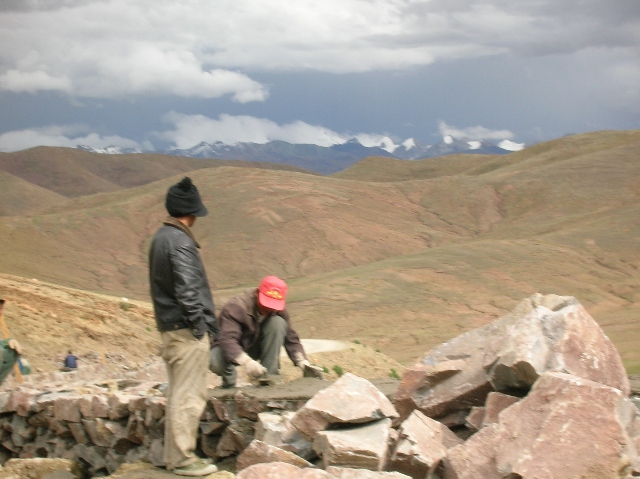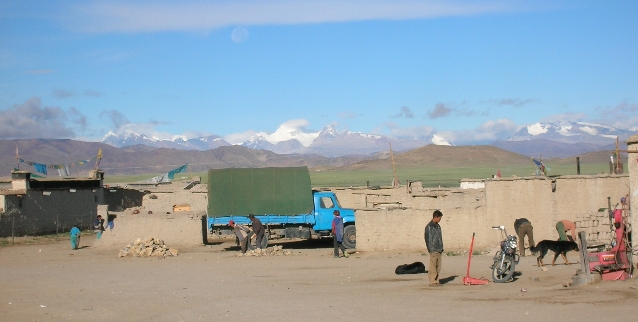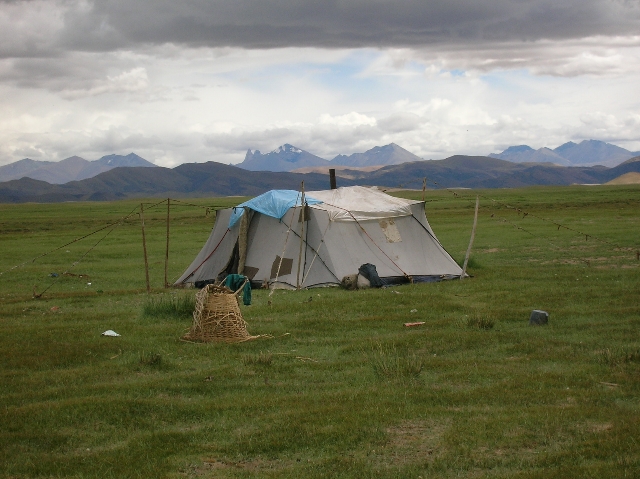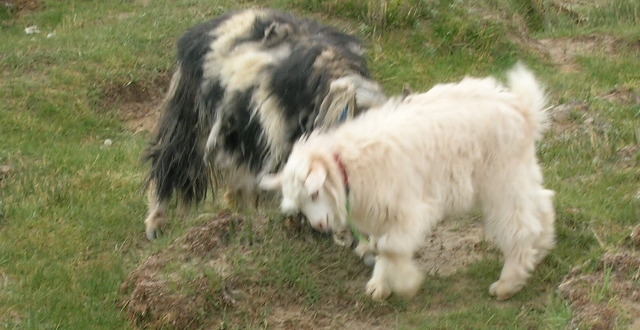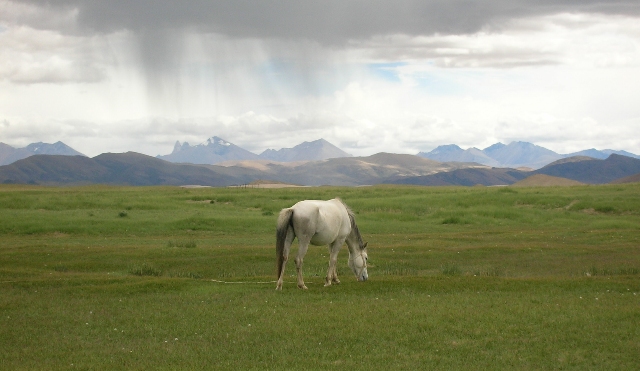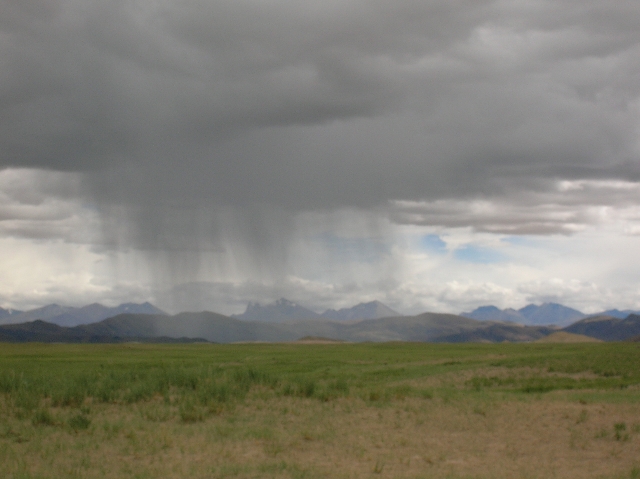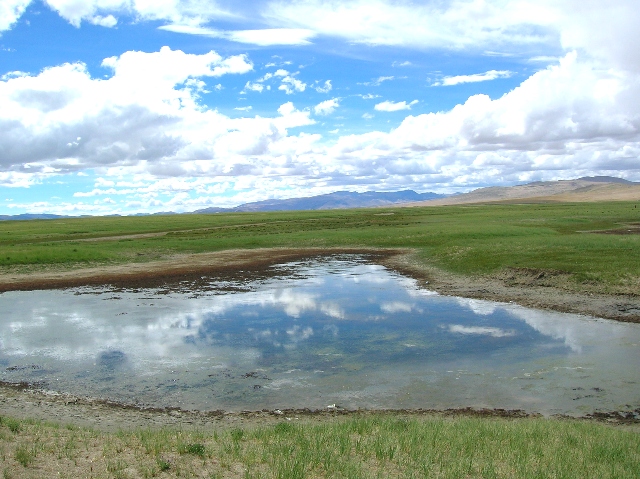| Prelude |
Day 13: PariyangWe get up the next morning to the sound of martial parade music. We slip across to the restaurant, and my Chinese gets another workout with another set of complex restaurant orders. It's worth it for the coffee (instant, but still much appreciated.) Our waitress does such a good job with our constantly-evolving breakfast order that I offer her a tip, forgetting that tips are completely unheard of in China. I encounter as much surprise as if I had tried to tip a doctor, a receptionist, or a cop. Looking back I wonder if she thought the extra payment might relate to her side business somehow. We all liked her so much that I hate to think of her as a working girl, but she probably was.The Danish couple arrive late for breakfast and don't seem entirely with the program. We put it down to our exhausting day yesterday. Pablo teaches us a card game called 'Shithead', which as I write I am astonished to see on Wikipedia is actually a real game and not some figment of Pablo's sick imagination.
Sana is seriously sick. Her color is green, she is having trouble breathing, she is only semi-coherent, and most worrying she is having trouble walking or even staying upright. I finally recognize the symptoms of High Altitude Cerebral Oedema, the most dangerous of the three forms of altitude sickness. The brain is swelling inside the skull: if left untreated it can lead to permanent brain damage, incapacitation, or death. We ask around for a doctor. The person pointed out has no office, white coat, medical equipment, or any other outward indication of professional skill - in fact he looks like something of a hustler and a slimeball. He also doesn't have any oxygen (which is what Sana needs in the short term.) However he's pretty unequivocal about the need to evacuate her to low altitude as soon as possible, which would be my recommendation too. Low altitude is a long way away here: a full day to Sagar which is still above 15,000 feet, then another day to Nyalam near the Nepalese border at 10,000 feet, and another day to Kathmandu at 6,000. What to do - is there any way we can continue our expedition? At 16,000 feet after a long day none of us are thinking all that clearly. The remaining driver from our original two is prepared to evacuate the Danish couple to the Nepali border, but absolutely refuses to come back to Pariyang unless we personally pay him a sum that is beyond our means. The road has freaked him out too, but unlike our first driver at least he's open about it. He says that he's afraid his Landcruiser, his only asset, will be seriously damaged, and that if he had known the condition of the road he would never have agreed to come. He says that to drive this road four times would be tempting fate. I don't hear Dorje disagreeing with any of this. The bulk of the negotiation falls to me since I and Dorje (who seems completely tuned out) are the only ones who speak both English and Chinese. I, Pablo, and the Swiss couple are still in tourist mode to a large extent. We have paid good money for this trip, some problems have arisen, and it's up to the tour company to take care of it. We ask Dorje, who carries a cell phone for emergencies, to call Rene, the manager at Shigatse Travel, and ask him to make some arrangements. Then Dorje says something that makes us realize the reality of our position. He says that cell phone time is expensive, and that calling Rene isn't worth the cost of the call: there's nothing Rene can, or at least will, do. We truly are on our own here. This is a real adventure, not just a carefully-controlled fake one, and its outcome is in our own hands. We are still very reluctant to let the driver go. I try to guilt-trip him into returning by accusing him of putting his own interest before Sana's health and safety. He points out with perfect justice that it is I who am putting my own interest before Sana's. All I need to do to help her is to let him take her to safety, now. As soon as he says this I realize he is right and that there is no point arguing further. We get Sana and her partner ready for the trip back to Sagar with our good wishes and some supplies. We all know how desperately disappointing it must be to come so close and have to turn back. Then we start to discuss whether there is any way we ourselves can continue our trip to Kailas. Finally we come up with a plan. The six of us, with our mountain of baggage, will all squeeze together into the remaining Landcruiser. The only way this can work is for Dorje to sit in the trunk, squeezed sideways into a tiny space with the baggage falling on top of him. The Toyota Landcruiser is virtually the only remotely affordable passenger vehicle rugged enough to handle this trip, but even it is not meant to be overloaded like this, as we are to find out soon enough.
I have very little photographic evidence of how bad Pariyang is. Even to a non-photographer a storm over distant mountains is an obvious photo opportunity, but it's hard to remember that garbage, mangy dogs, dried-out turds, rotting meat, and running sores are photo opportunities as well - nor of course is it there yet a way to photograph a smell. Nomads can abandon what they no longer want: settlers must find a way to deal with it. The transition from nomad to settler is inevitably a messy one (I am going through this transition in my own life, so I should know.)
The children, who have been told to go away more times than I can count, put their heads around the doorpost of our room to see what they can sneak away with. I completely lose my temper, snap back my right arm, and throw its contents at them with all my might. It happens to be a Jefferson County library book, 'Circling the Sacred Mountain', by Tad Wise (already a week overdue at this point.). The book is about two inches thick, and so is the doorpost. By very good luck the book smashes straight into the doorpost, spine first: if it had been two inches to the right it would have smashed, hard, into a child's face. I and the child have both had a very lucky escape from the consequences of my lack of awareness and compassion. The alignment was so precise that the children assume I must be an expert who missed deliberately to warn them, and vanish swiftly and silently. The truth is that, at the ten-foot range from which I threw, my aim could easily have been off by a foot either way.
Pablo continues our education in the game of 'Shithead'. We are somewhat suspicious of this game, as he keeps winning and also keeps on coming up with as-yet-unexplained new rules. However, after a while the rules stabilize and the Swiss couple become more competitive with Pablo (not me, I keep losing as much as ever.) Our evening ends when I spill water over the deck of cards. For a while my name is mud - cards tend to dry out badly, and our chance of finding a replacement deck on this trip is close to zero. However, somewhat to everyone's surprise the cards dry out as good as new, though suspicion of my motives remains. |
